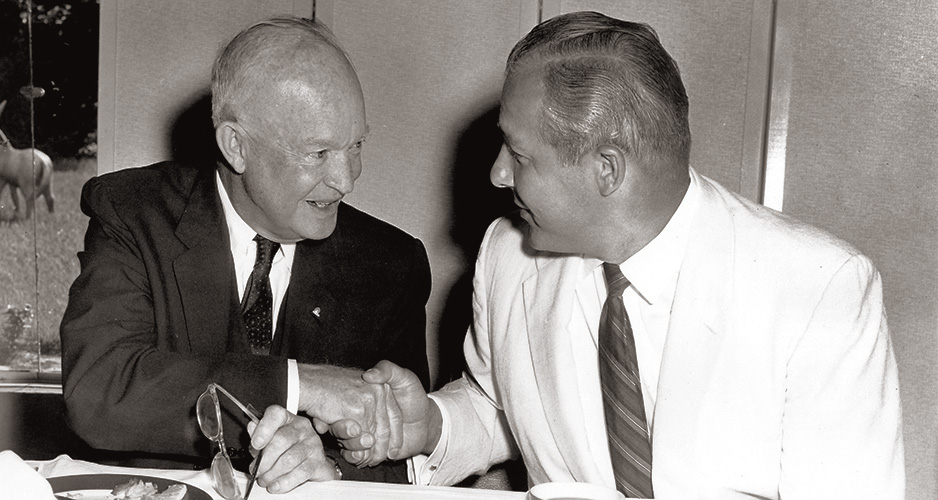Congressman Bob Michel would have turned 100 this month
U.S. Rep. Bob Michel only once officially wielded the Speaker’s gavel.
Coming to the close of his 38th year in Congress, the longtime minority leader got the chance when Democratic Speaker Tom Foley crossed the aisle and let him gavel the proceedings to order the night of Nov. 29, 1994.
It was a gesture of bipartisanship, but the embrace between the two men also bespoke friendship.
“Those feelings between leaders are all but gone,” just-retired Associated Press reporter Alan Fram wrote last year.
That moment and the bipartisanship it showcased are among the many enduring legacies left behind by Michel, who was born a century ago this month.
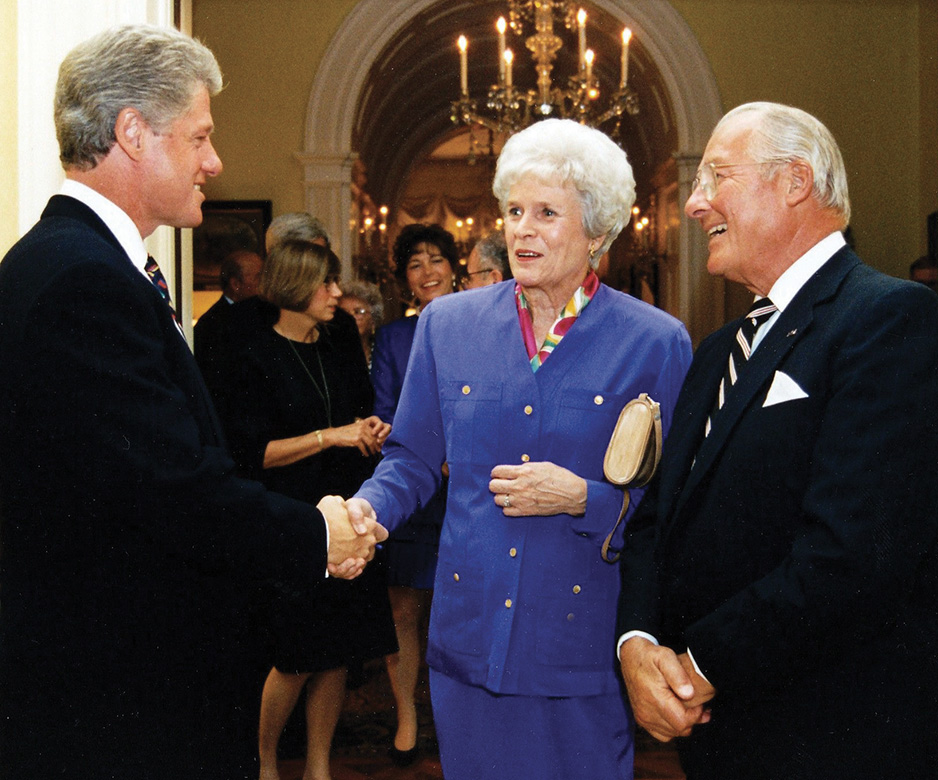
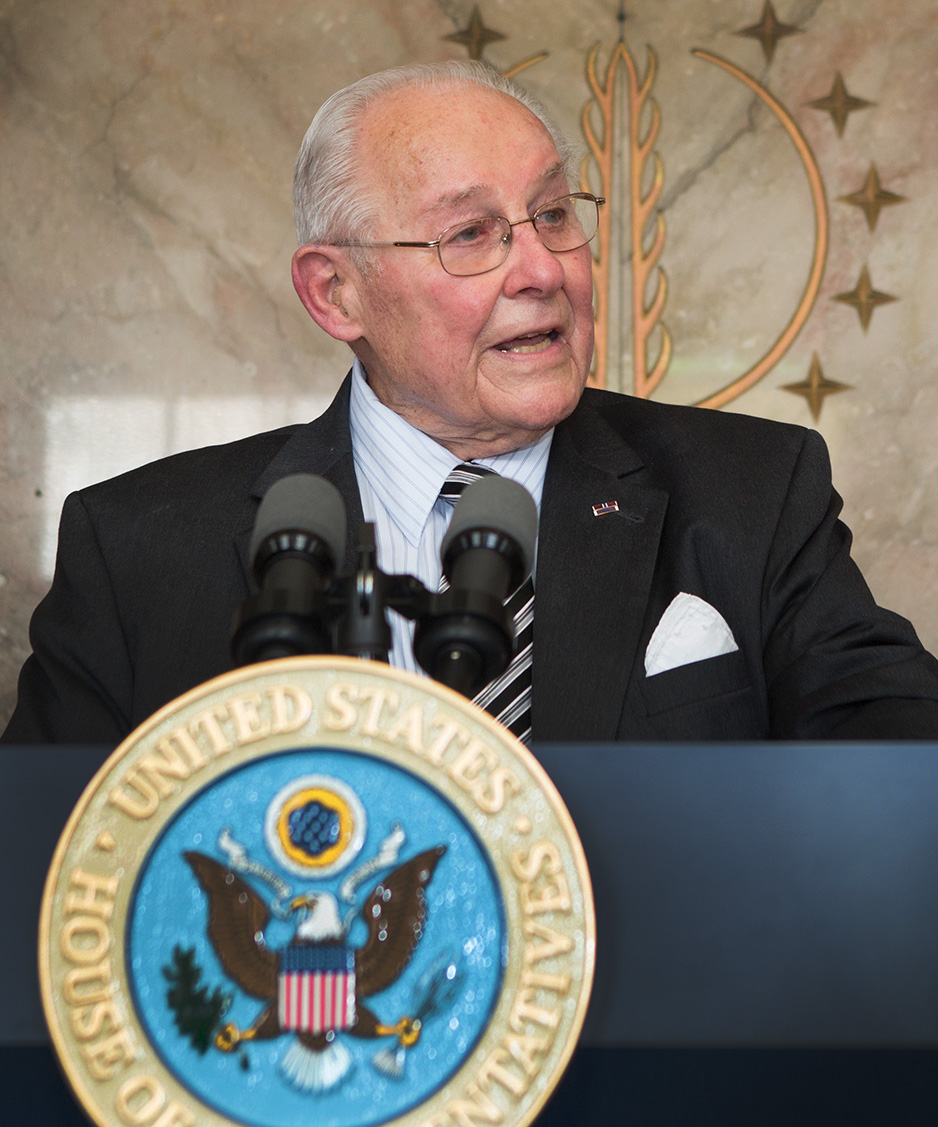
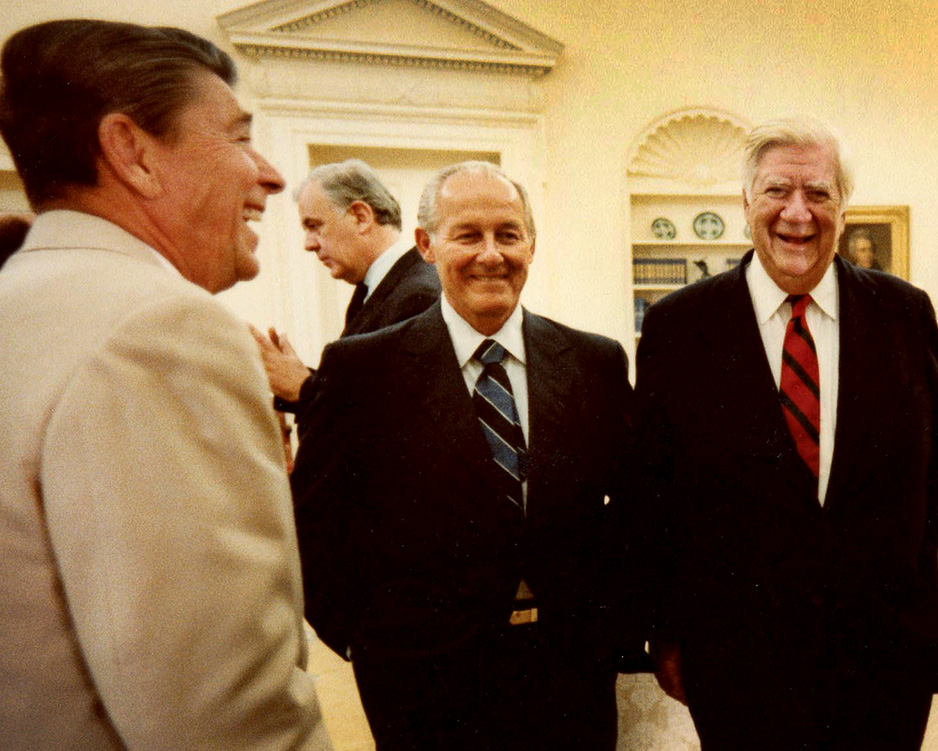
‘He showed us that consensus is not weakness and .. compromise is not capitulation’ — Sen. Richard Durbin
Michel exemplified America’s perception of a responsible public servant, with a reputation for civility and decency yearned for in op-eds and commentary during January’s prolonged House speakership votes. But he also left a legacy that touches the Peoria area to this day, through his legislative work and his behavior.
Humble beginnings
Michel was born on March 2, 1923 and grew up modestly on the city’s East Bluff, worked hard inside and outside the classrooms of Peoria High School and entered hometown Bradley University.

But then World War II intervened and Michel joined the Army, landing at Normandy among the waves of troops following the D-Day invasion. Seriously wounded months later at the Battle of the Bulge, the combat infantryman returned to the States and re-entered Bradley on the G.I. Bill.
What he later called a “quirk of fate” shortly before graduation set him onto a career path that would define the next half-century.
With then-Rep. Everett Dirksen’s pending retirement from the House due to an eye ailment, successor Harold Velde, a Pekin judge, was lining up a staff. Velde’s pal, Bradley President David Owen, pulled Michel into his office to recruit him after having seen his activity on campus.
Michel initially demurred with his trademark humility, protesting that he’d taken classes in business, not speech, political science and journalism. Be open, Owen counseled, and have the meeting.
“I could have very well said, ‘Oh, I don’t want to go down for that interview. That’s just so far afield for me,’ but I was pliable and amenable, and I found out that that was probably one of the bigger lessons in life I learned,” Michel recalled in retirement.
After running Velde’s office for eight years, Michel succeeded him in 1957, remaining in Congress for the next 38 years.
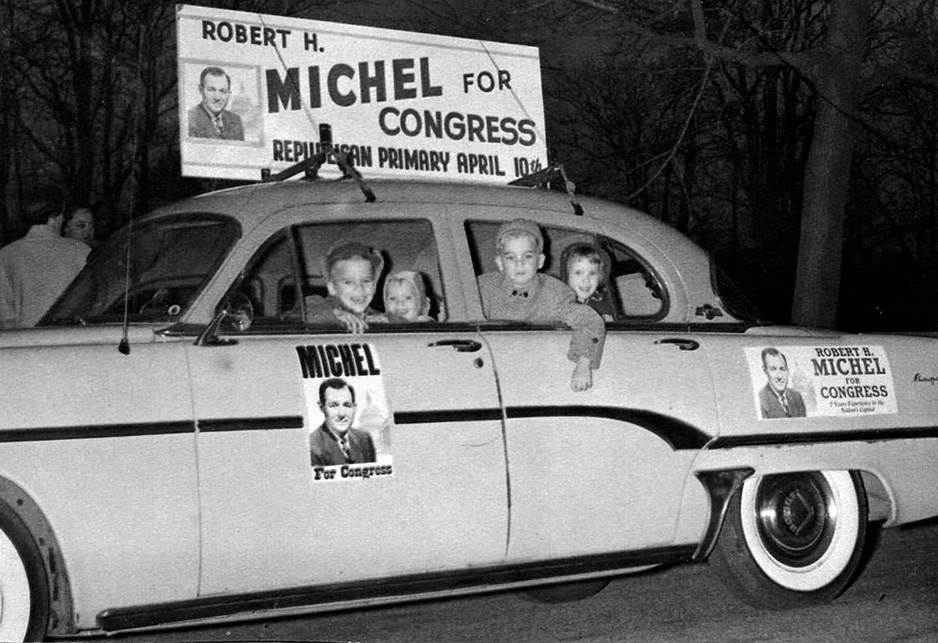
18 more times
Rising in the ranks on Capitol Hill
In the capital, the affable everyman made a name for himself. Beyond his work ethic, another skill helped him build friendships and connections: singing.
Music was foundational to Michel, who met his wife Corinne through Bradley’s music program. His reputation as a songbird helped him connect on Capitol Hill with like-minded members. He also credited those performance skills with helping his public speaking.
It didn’t take long to land on the road to success. Michel was named to the powerful Appropriations Committee during his second of 19 terms, quite literally by chance. He and suburban colleague Harold Collier were under consideration for Illinois’ seat on the panel. The men, who roomed together, agreed to flip a coin for it, an endeavor that took two tries after the first flip landed on the floor and rolled on its edge to the baseboard.
Michael developed a reputation as a fiscal hawk after constituents told him,
“Bob, your charge is to get down there to Washington, cut the cost of government, get it off our back and lower my taxes.” As a result, he operated under the belief that his seat on Appropriations wasn’t meant to generate pork for projects back home, but to direct resources where they were most needed.
he labeled himself ‘dumbstruck’ when state lawmakers voted to name the Bob Michel Bridge after him
“He was kind of the old-fashioned politician. He did the hard work, he got the job done, but then he never really bragged about it. He never really cranked out a lot of press releases to try to impress people,” longtime aide and eventual successor Ray LaHood recalled in a WTVP-TV interview as Michel’s tenure ended.
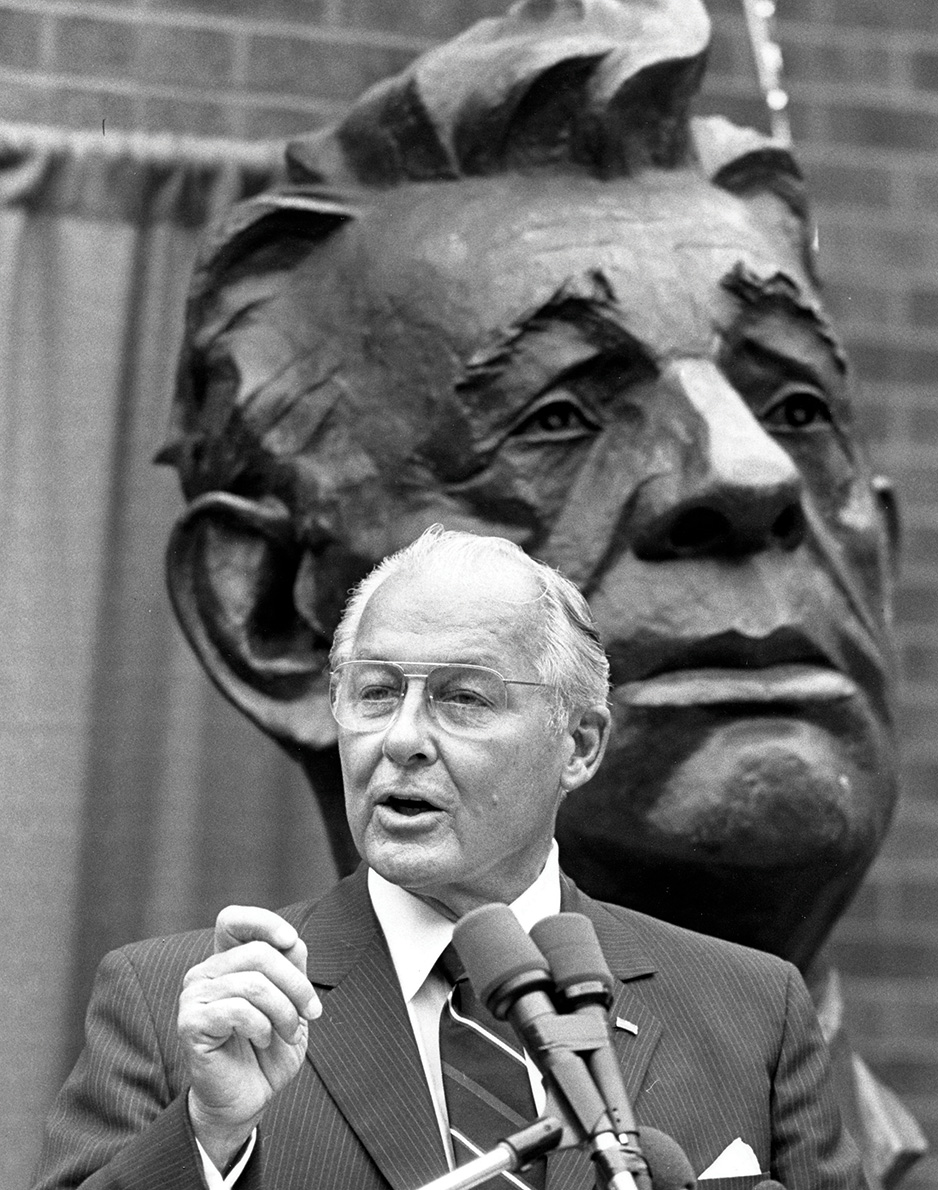
Bringing home the bacon
Michel got better at steering federal dollars to central Illinois after barely surviving a tough re-election race, just as he’d been selected House minority leader. Still self-effacing, he took a dim view of legislators who ushered along projects to be named after themselves.
In fact, he labeled himself “dumbstruck” when state lawmakers voted to name the Bob Michel Bridge after him, letting out a trademark non-expletive of frustration in one interview: “I said, ‘Jiminy Christmas, that’s the one thing I’ve been arguing against all the time!” (He put the kibosh on a similar effort that arose after he secured federal money to partially fund a new building for Bradley’s School of Communications and Fine Arts, though the school’s student center just blocks from his Uplands home does honor his BU connections.)
Without his efforts, countless other pieces of the local landscape, from Interstate 155 to modernized National Guard facilities at Peoria’s airport, wouldn’t look as they do.
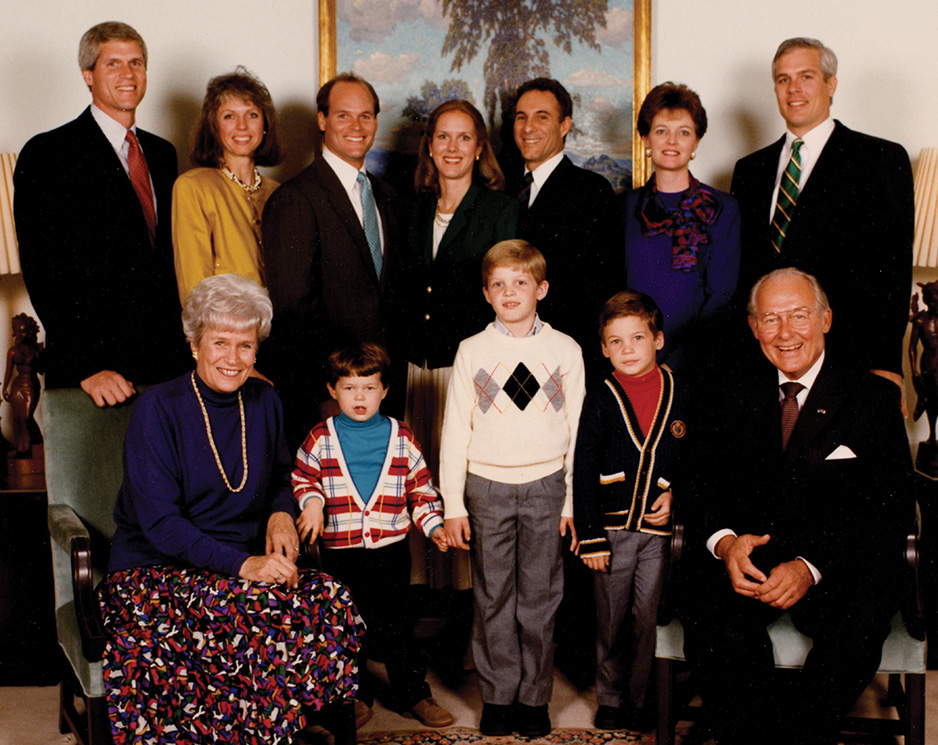
Along the way, he established a high standard for constituent service — something central Illinois has come to expect from its lawmakers at all levels. And he supported and nurtured the staff that provided it, helping many grow into the next two generations of leaders in the government, business and not-for-profit worlds.
“When you worked for Bob Michel, you were a part of his family,” LaHood said. “He cared as much about you as a staffer as he did any one of his children or grandchildren.”
In the minority, but effective
Under his watch as minority leader in the House, Michel stressed collaboration among his colleagues.
He told his caucus, “I don’t personally crave the spotlight of public opinion. My job is to orchestrate your many talents. I know some of you prefer to speak quietly, like woodwinds, and some very loudly, as brass and percussion. But our measure of success is how well we harmonize.”
It was a spirit of comity that stands in contrast with the more bombastic leaders who’d follow.
It led to success in bridging gaps between Democrats and Republicans. Reforms to Social Security and federal income taxes were passed into law, still heralded four decades later. Michel’s style in attracting bipartisan support reflected his personal style: honey, not vinegar.
Michel “taught us the importance of listening and respecting another person’s view, even if you didn’t agree with him,” U.S. Sen. Dick Durbin said while memorializing Michel weeks after his death in 2017.
‘Our measure of success is how well we harmonize’ — Bob Michel
“He showed us that consensus is not weakness, and principled, intelligent compromise is not capitulation — it’s how a democracy works.”



